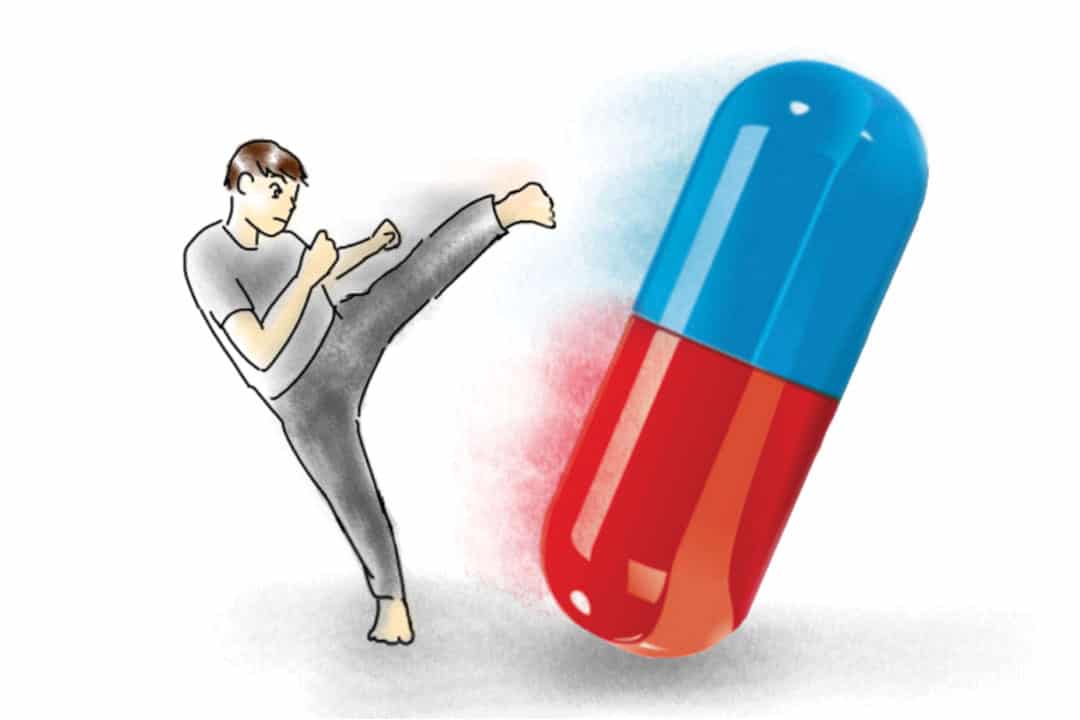Companies that sell supplements and vitamins are currently in their heyday. In 2021, the global dietary supplements market was valued at 151.9 billion USD and is only expected to grow over the next eight years. Dietary supplements hold a particular allure for those hoping to boost their athletic performance. However, the question remains: are these products effective?
What are supplements?
Dietary supplements are a class of products that tread the line between food and medicine. They include ingredients such as vitamins, minerals, herbs, amino acids, and enzymes, which are generally packaged in tablet, powder, or liquid form. Manufacturers often market supplements with claims that they can support longevity, stave off disease, or increase athletic ability.
In Canada, supplements are regulated as Natural Health Products (NHPs), so any health claims manufacturers make must be “supported by proper evidence,” according to Health Canada. However, the claims manufacturers use to market NHPs to healthy adults are held to the lowest evidentiary standards by Health Canada; manufacturers can claim that a dietary supplement helps athletes based on a single, phase two clinical trial — the testing of a drug on a small number of patients — or statements from “reputable textbooks.” As such, labels alone won’t reveal which supplements are beneficial or bogus.
From the experts
To get a better handle on which supplements may boost athletic performance, The Varsity interviewed Ira Jacobs, the dean of the Faculty of Kinesiology and Physical Education (KPE) at U of T. While employed by the Canadian Department of National Defense, he researched the use of nutritional supplements to enhance military members’ performance and survival, during which time he rose to the rank of chief scientist for the Human Sciences Research Center. Through his time in government and, more recently, as a professor, he has become familiar with hundreds of supplements.
In an email to The Varsity, Jacobs explained that, out of the numerous supplements marketed to athletes, “there are a handful that have repeatedly demonstrated beneficial effects based on well designed and controlled research with healthy humans.”
Some of the nutrients that Jacobs highlighted are well known and easily accessible. For those involved in moderate-intensity exercise that requires endurance, eating a carbohydrate-rich diet in the days leading up to training or competition can restore and increase muscle glycogen levels, allowing athletes to sustain their performance for longer periods of time.
Likewise, a cup of coffee or tea may also boost athletic performance by staving off fatigue. “Caffeine sensitivity varies widely among individuals and most people will know already whether they are ‘responders’ or not to the alertness promoting effects of caffeinated drinks,” wrote Jacobs. “If they are, then they will likely also be ‘responders’ to the physical performance enhancing effects of caffeine.”
Although it is common knowledge in the athletic world that consuming additional protein — when combined with strength training — may help grow muscle faster, Jacobs also highlighted the importance of protein for endurance. He wrote, “research by my colleagues in KPE has demonstrated that protein needs during aerobic training are also augmented because of the increase in protein metabolism that also accompanies such exercise.” In simple terms, some protein breaks down to provide energy for aerobic exercise, so athletes engaged in moderate-intensity endurance events often require additional protein to replenish these stores.
However, there is little support for the belief that you should fill up on protein right before or after hitting the gym. In fact, a 2013 study suggests that spreading out protein consumption may increase rates of muscle protein synthesis.
While protein supplements are easily accessible, the other two effective supplements that Jacobs mentioned are a bit harder to come by. One is creatine monohydrate, which is currently one of the most popular athletic supplements. Although a standard diet provides some creatine, studies have repeatedly shown that consuming additional creatine monohydrate can improve performance during high-intensity exercise, and may also enhance recovery and injury prevention.
The strength of these data led the International Society of Sports Nutrition to this conclusion: “creatine monohydrate is the most effective ergogenic nutritional supplement currently available to athletes in terms of increasing high-intensity exercise capacity and lean body mass during training.” However, most studies examining the benefits of creatine for muscle growth have used subjects who were assigned male at birth, and research suggests that people assigned female at birth may not respond as dramatically to the supplement.
Another supplement that may help some athletes is beta-alanine. During high intensity exercise, hydrogen ions accumulate in muscles and make it more difficult to generate force. Consuming beta-alanine supplements for at least four weeks can indirectly help neutralize these ions, leading to increased muscular endurance during maximum intensity exercises.
Putting in the work
Even though some supplements can help athletic performance, it’s best to not buy into the hype too much. “[There are] hundreds of supplements that are marketed, and… relatively few for which there is strong scientific support for their efficacy,” wrote Jacobs.
If you’re interested in supplements, Jacobs recommends taking time to examine the research and discern which supplements are beneficial, in what amounts, and for which sports. “There is lots of credible literature in excellent scientific journals,” he wrote.
However, Jacobs warns that turning to just one study is often not sufficient. For many supplements, he explained, “there are some supporting research studies that show benefits, and yes there are just as many that report no benefits.”
Even when there’s scientific consensus that a supplement benefits athletes, caveats still remain. “In research it is almost always possible to divide the research participants into two groups — those who respond positively (in terms of the performance effects) and those who do not respond,” wrote Jacobs. “The best way to find out what group you are in is to try the supplement — and not do so for the first time just before an important competition.”


